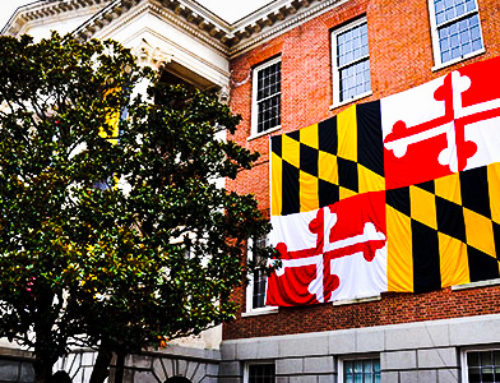View by Topic
Recent Articles
-
President Trump’s Bold Step to Rein in State Overreach in Climate ChangeSaturday, April 12th, 2025
-
Mandatory GHG Disclosures in Maryland Real Estate ContractsSaturday, April 5th, 2025
-
NYC Building Electrification Ruling is Interesting But Not a Game ChangerSaturday, March 29th, 2025
-
Greenpeace Ordered to Pay $667M in Blow to ActivismSaturday, March 22nd, 2025
-
The Most Consequential Day of Environmental Deregulation in American HistorySaturday, March 15th, 2025
View by Month/Year
“Green Building Law Update” Headlines
Recent Articles & News from
Stuart Kaplow’s blog
at GreenBuildingLawUpdate.com
- President Trump’s Bold Step to Rein in State Overreach in Climate Change April 13, 2025
- Mandatory GHG Disclosures in Maryland Real Estate Contracts April 6, 2025
- NYC Building Electrification Ruling is Interesting But Not a Game Changer March 30, 2025
- Greenpeace Ordered to Pay $667M in Legal Blow to Environmental Activism March 23, 2025
Subscribe to the Green Building Law Update!
Stuart Kaplow brings his expertise and extensive experience to the table with his unique digital publication, "Green Building Law Update". Subscribers receive regular updates to keep them informed about important issues surrounding Environmental Law, Green Building & Real Estate Law, as well as the emerging demand for Environmental Social Governance (ESG).
Get fresh content through the lense of Stuart Kaplow's cutting-edge expertise, innovative commentary and insider perspective. Don't miss another issue! Subscribe below.
Convert Now To An LLC To Avoid Newly Enacted Maryland Transfer Tax
Legislation enacted in the 2001 Maryland General Assembly Session will narrow the ability to transfer real estate to a limited liability company without the payment of recordation and transfer taxes.
In a Machiavellian twist, Senate Bill 18, as sponsored by Senator Larry Haines, sought to clarify certain existing exemptions from recordation and transfer taxes, but was amended to have the exact opposite effect of making the exemptions from tax more limited than currently exist.
The limited liability company, or LLC, is an unincorporated form of business organization similar to a partnership. The LLC possesses a liability shield protecting its owner from liability to the same extent that stockholders of a corporation are insulated, and the form of entity offers certain advantages in alienability (i.e., transferability).
The dollar amounts of exempt recordation and transfer tax can be significant. The State transfer tax rate is 0.5% of the consideration payable for an instrument of writing conveying title to, or a leasehold interest in, real property. A local property transfer tax is imposed by most local jurisdictions and, for example, that tax rate in Baltimore County is 1.5%.
Additionally, the Counties and Baltimore City are authorized to impose locally established recordation taxes and, for example, that tax in Baltimore County is $2.50 per each $500.00 of actual consideration.
Effective July 1, 2001, the new law creates the “real estate enterprise” as a business conducted by one or more individuals who own real property, including a sole proprietorship or a tenancy by the entirety, and are involved principally in buying, selling, leasing or managing real property.
A transfer from a real estate enterprise to an LLC will only be exempt from recordation and transfer tax if: (1) the transfer is for no consideration other than the issuance of membership interests in the LLC; (2) the members of the LLC are identical to the partners of the conveying real estate enterprise; (3) each member’s allocation of profits and losses of the LLC is identical to that of the member’s allocation of the conveying real estate enterprise; (4) the transfer is part of a discontinuation of the real property enterprise; and (5) all real property owned by the individuals and used in the conduct of business is being converted to a single LLC.
Under the current law, a married couple that own real estate as tenant by the entireties, could transfer that property to an LLC without recordation or transfer tax. The Office of the Attorney General had claimed such a transaction was subject to tax and one of the purposes of Senate Bill 18, as introduced, was to clarify that such a transaction was exempt from tax. But, as amended, the bill has the opposite effect and creates a situation more restrictive than even the current law.
By way of example, today a husband and wife proprietorship that own the land and building housing their bakery, can convert to an LLC without triggering the levying of tax. That transfer will in the future be subject to tax. An exemption will only exist in the future for husbands and wives that are “principally involved in owning, buying, selling, leasing, or managing real property.”
Very significantly, the law has been changed to require that all real estate owned by individuals or real estate enterprises must be transferred to a single LLC, even if there are several properties each in different businesses. Noting that the overriding reasons for converting to an LLC are to limit liability and to permit the free transferability of the land, this provision of the new law all but evaporates those advantages.
And also of concern, it appears that while transfers from real estate enterprises to LLCs are exempt from State tax, such transfers will now have to pay County transfer tax. As prefiled, the bill modified section 12-108(y) of the Tax Property Article of the Annotated Code, but amendments adopted added a new subsection BB. Section 13-405(c) extends the 12-108(y) exemption from tax to County transfer tax, but that section was not amended to also include the new tax in subsection BB, thus the County tax is due.
This legislation will not impact general partnerships, limited partnerships, joint ventures, and LLLPs, that otherwise also be exempt from tax on the transfer of real estate to LLCs. However, owners that hold title to real estate that will fall within the new definition of a real estate enterprise, including spouses who own land as tenants by the entireties, should carefully review the legislation.
Given Senate Bill 18’s July 1, 2001 effective date, it may be necessary and proper to immediately convert the ownership of existing real estate to LLCs.









